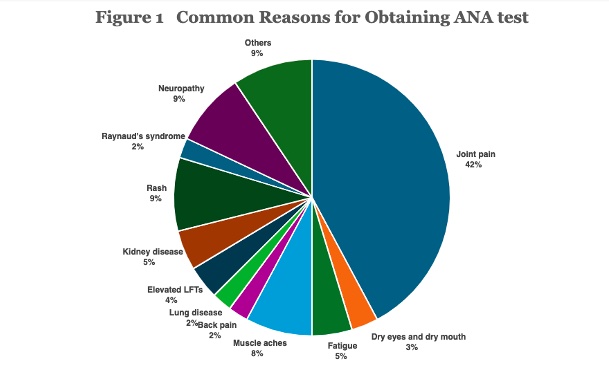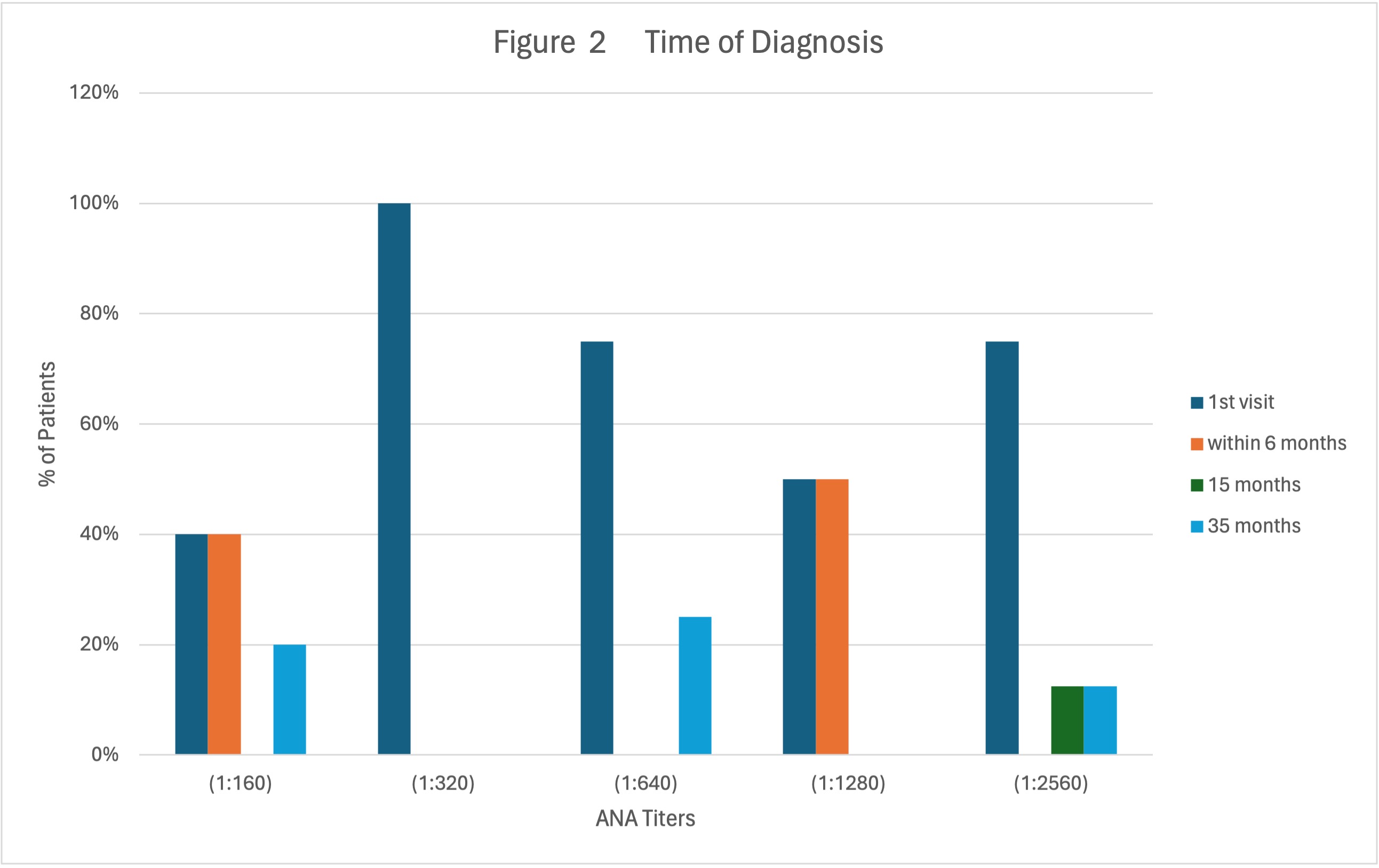Session Information
Session Type: Poster Session C
Session Time: 10:30AM-12:30PM
Background/Purpose: One of the most common referrals seen in rheumatology is for a positive anti-nuclear antibody (ANA). Often, the referral does not yield in a connective tissue disease diagnosis, as positive ANAs are often present not only in rheumatological or autoimmune diseases, but can be elevated in patients with chronic infections, malignancies, and roughly 11.0 % – 16.1 % of healthy general population (1). The prevalence of ANA also increases with age. Therefore, the presence of ANA remains of questionable significance. This study aims to identify if patients with positive ANA titers develop ANA-associated rheumatic disease over years of follow up.
Methods: This retrospective cohort study included patients who were internally referred to our institution’s rheumatology clinic for positive ANA test results between January 01, 2013 and January 01, 2023. Relevant descriptive and laboratory results including the reason for ordering an ANA test, laboratory results before or at the time of visit, patient’s final diagnosis, and follow up appointment, if applicable, were extracted.
Results: 128 patients were referred for a positive ANA result. 22 patients were diagnosed with an ANA-associated disease in this cohort. 15 individuals were diagnosed at their first visit, 3 within the first 6 months after the initial visit, 1 at 15 months, and 3 at 31-36 months. 80% (8/10) of patients in the two highest titer groups were diagnosed at initial visit or within 6 months of visit. No ANA-associated rheumatic diseases were found in patients with titers < 1:160. Patients with higher titers were more likely to be asked to schedule follow up appointments compared to patients with lower titers. Disease-free cohorts with titers of 1:1280 had an average of 44 months of follow up, 20 months for 1:2560, and 10-18 months for titers ≤ 1:640. The direct ANA group had the lowest average of less than 5 months. The most common reason for ordering an ANA test was joint pain (54/128, 42%).
Conclusion: In this retrospective study, only 17% of patients who were referred for a positive ANA were diagnosed with a connective tissue disease during the course of their visits, with the majority being diagnosed at their initial visit. Though many rheumatologists will continue to follow patients with positive ANAs, in our study, only an additional 5% of patients were diagnosed with a connective tissue disease over 35 months. Our study highlights the high prevalence of potentially unnecessary ANA testing and the need for educational opportunities for general internists on ANA testing. Further studies are also needed to understand how closely those with positive titers should be followed in the rheumatologic setting.
To cite this abstract in AMA style:
Nguyen U, Syed H. Presence of ANA to Development of Rheumatic Diseases [abstract]. Arthritis Rheumatol. 2024; 76 (suppl 9). https://acrabstracts.org/abstract/presence-of-ana-to-development-of-rheumatic-diseases/. Accessed .« Back to ACR Convergence 2024
ACR Meeting Abstracts - https://acrabstracts.org/abstract/presence-of-ana-to-development-of-rheumatic-diseases/



